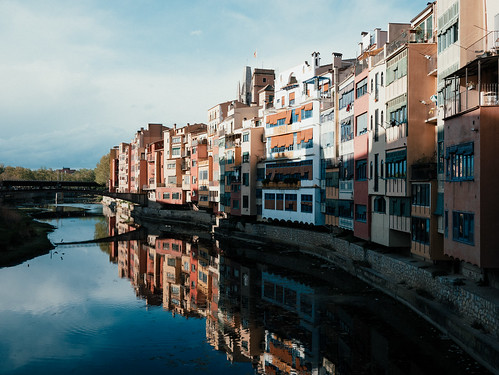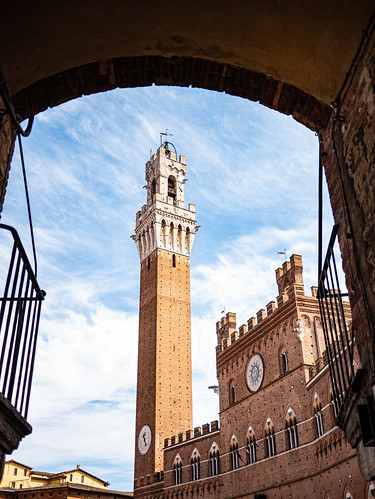Not the greatest of photographs, but I thought I’d continue with a bird. When I was looking at this one I was approached by some French retirees who asked me if there was anything interesting to see. Not knowing the French for egret, I said “Il y a un héron”, only to get the slightly contemptuous reply “Ce n’est pas un héron, c’est une aigrette!”. So I learnt a new word.
Posts by author:
Chris Bertram
I’ve not done much bird photography. It is actually pretty hard, since they move fast, change direction, disappear as soon as they see you, and are generally uncooperative subjects. But I’m resolved to do more and I’ve started to figure out some of the technical issues. There’s something serendipitous about this one, as I was actually concentrated on the bird to the left and didn’t realise that I had also captured its companion.
Amid the current horror and propaganda, the pogroms, kidnapping and bombings, and the (at best reckless) violence against civilian populations it is important not to lose sight of what a justish solution might be in Israel/Palestine and it seems to me that this is actually a rather simple matter at least as soon as we set aside outcomes that require the total erasure by displacement or murder of either Jewish Israelis or Palestinian Arabs or the unjust domination of one group by the other. Some “just” solutions are better than others, but in the non-ideal world we have to accept some compromise with geopolitical force majeure and the fact that some people just hate other kinds of people.
Just-ish solutions
1A: A single state in which everyone living long-term within its borders has citizenship on equal terms, irrespective of national, ethnic or religious background.
1B: A single state with some kind of consociational system for power-sharing and, therefore, some explicit recognition of individual national, ethnic, or religious affiliation.
2: A two-state solution involving demarcated territory for each national group, based on some fair territorial settlement between them.
1A is preferable to 1B is preferable to 2, from an abstract liberal and democratic perspective. But given that we live under non-ideal circumstances and peace is also important, then 2 strikes me as acceptable.
Sorry, when you are semi-retired and in France anyway, easy to forget days of the week. Here’s an iPhone photo, from when I happened to be out and about in Pézenas. The wall is actually something to do with a local sport, possibly “jeu de tambourin”, but I’m not quite sure of its function, and the former playing area is now a car park.
Tomorrow morning brings the 50th anniversary of the coup in Chile and the death of Salvador Allende [Le Monde has that photo], a coup which was, of course, followed by mass incarcerations, witch-hunts and murders and by the exile as political refugees of many Chileans of the left. (In today’s climate those exiles would have struggled to find sanctuary. Perhaps Sunak and Braverman would have put them on the Bibby Stockholm, a marginal improvement on a Santiago football statium.) I remember the coup, sort of, as a teenager. But not clearly: it was something shocking and far away. But the years of aftermath I do remember: meeting exiles, Latin American solidarity campaigns with them, the showings of films like The Battle of Chile and, later, Missing.
I have nothing particularly insightful to say now about the coup itself, or the later, shameful failure of the British to hold Pinochet to account for his crimes (“he was only giving orders”). But, in an atmosphere where the political right from Fox News to the British Daily Telegraph to France’s C-News whip up paranoid fantasies that might serve to legitimate “pre-emptive” action even against liberal democracies, and where Donald Trump remains a threat, it is worth re-reading Ralph Miliband’s essay from 1973, and particularly his thoughts about the editor of the London Times:
In so far as Chile was a bourgeois democracy, what happened there is about bourgeois democracy, and about what may also happen in other bourgeois democracies. After all, The Times, on the morrow of the coup, was writing (and the words ought to be carefully memorized by people on the Left): “… whether or not the armed forces were right to do what they have done, the circumstances were such that a reasonable military man could in good faith have thought it his constitutional duty to intervene”. Should a similar episode occur in Britain, it is a fair bet that, whoever else is inside Wembley Stadium, it won’t be the Editor of The Times: he will be busy writing editorials regretting this and that, but agreeing, however reluctantly, that, taking all circumstances into account, and notwithstanding the agonizing character of the choice, there was no alternative but for reasonable military men … and so on and so forth.
Our cultural excitement for the week was a visit to the spectacular Château Laurens in Agde, an art nouveau villa built at the end of the 19th century by a spectacularly rich idle opium smoker and yachtsman, sold to friends when he lost all his money, locked up for 50 years and then reopened in June. It is right next to the railway (modernity!) and was built there so the trains could stop outside, and his friends could alight and drink champagne in the garden. Lots of other pics on my Flickr, but one below.












